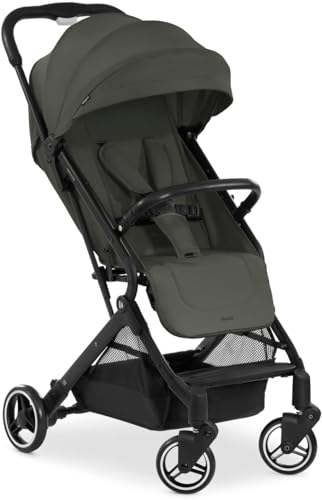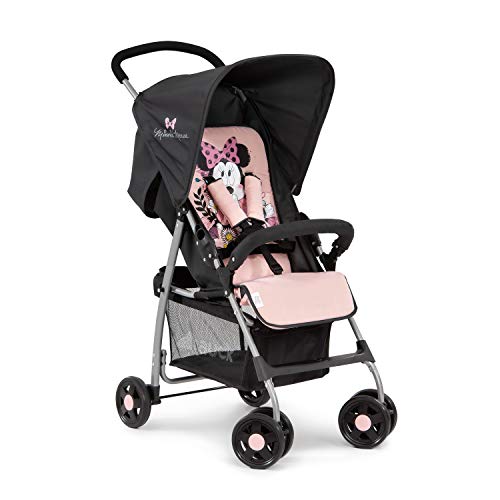What Is The Best Way To Spot The Parent Facing Pram That's Right For Y…
페이지 정보
작성자 Harrison Kunze 작성일25-01-02 20:22 조회8회 댓글0건관련링크
본문
 Monitor Your Little One's Wellbeing With a Parent Facing Pram
Monitor Your Little One's Wellbeing With a Parent Facing Pram You can easily track your child's well-being and comfort when they're snuggled in a pram uk with a parent facing. This is particularly useful during busy days out.
You can easily track your child's well-being and comfort when they're snuggled in a pram uk with a parent facing. This is particularly useful during busy days out.University of Dundee study found that children in buggies with faces laughed more, chatted twice as often and had lower heart rates - all indicators of less stress.
Peace of Mind
A parent facing pram set is a great method to ensure your baby's safety is secure. They will be in a safe seat that is securely secured by the five-point harness. This will keep them secure from any accident that may occur when out and out and about.
A pram of good quality comes with a large basket that will hold all the baby's essentials so that you don't need to worry about where all the extra items will go. The right accessories are also important to help your baby stay comfortable during their travels including a footmuff (check whether they're compatible with a five-point harness) and an extra liner for your pram to shield against the sun or rain.
It's important to test the pushchair before you buy it for your child. Look for models with swivel wheels for manoeuvrability and adjustable handlebars so that everyone in the family can easily operate it.
If you're worried about your child falling out of their buggy or tumbling out of their seat, the safety harness is an essential item for every parent. It will stop your baby from leaving the seat and it's also a great option to keep them in close proximity in the event of an emergency.
It's important to remember that some experts on babies recommend that babies be at least six months old prior to using Prams Pushchairs prams with front facing windows but this is due to the individual developmental milestones. Some babies are ready to enter the outside world sooner, especially in cases where their curiosity and desire to explore the world is strong.
Parents may be worried that their baby will develop a flat area on the back of their head if they spend time in a pram with their backs to them, but there's no need to be concerned. Auckland osteopath Julia Griffiths says that babies should spend a lot more time lying on their backs to strengthen their skull muscle. This can be achieved with a carrier that is positioned in the direction of the parent, along with the supervision of tummy time.
Enhanced Bonding
If you've picked a pram with a carrycot, or are choosing a pushchair, the direction that your baby's face is when out and about is something you should consider. It may appear to be a minor issue, but it can have a significant impact on your baby's development as well as their interaction with you while out and about.
A new study has revealed that babies who are in buggies facing away are less likely to engage in conversation, laugh or interact with their parents compared with those who have an adult-facing pushchair. The study involved 2,722 children with their mothers from 60 cities as well as an additional study that focused on 20 mothers and their children. The study found that babies who were in a pram facing their parents were twice more likely to smile as those who were seated in a buggy that was facing away. The reason is that when your baby is able to see you, they are more engaged and excited to share their experience with you, encouraging bonding and conversation.
Babies have so much to discover about the world around them, and interacting with one another while doing it can help them develop and build bonds. You can also point out things to them like flowers or playgrounds, as well as other things that they might not otherwise notice.
However, it is important to remember that your baby should be able to sit up independently before turning to a pushchair that faces the front. Baby's younger than this age could be trouble adjusting to the change, and may be more upset when they are required to move from a seated to a standing position.
The best way to make sure your baby is prepared for the change is to get them tested by a health professional. They can check that your child's muscles and bones are strong enough to take on it, and check to see if they've developed any over-sensitive areas. This test is especially crucial if your child has been using the pushchair since birth or when you previously used a pram with rear-facing seats. A medical professional will be able to give you advice on the appropriate time for your child to transition to an forward-facing pushchair.
Better Eye Contact
The ability to make eye-contact with your child is one of the best features of a pram that is facing you. This is especially important for newborns and infants because they are still learning about the world around them. It's also a chance to talk to them and play with them, which helps them to learn the names of the objects they see and boosts their development in language.
According to studies, babies who face their parents are more likely to laugh and converse with them than those who look away. This is due to them absorbing the sounds and visuals of their surroundings, which helps them understand Travel Strollers what's happening around them. Eye contact helps parents and children to communicate. This helps to comfort the baby and allows him to relax.
It's also an excellent idea to take along a toy for compact travel pram for your child while they're in their pushchair. These toys are great for stimulating the mind and making children smile. These toys can also help your child recognise your voice which is important to develop their cognitive abilities.
Babies are fascinated by the world around them and exploring the world around them. However, as they become older and more active, they might be ready to sit forward in their pushchair. If this is true, it's worthwhile considering a front-facing stroller compact or pram from our collection.
After a few months of the switch to a front-facing pushchair it is recommended to add a footmuff to keep your baby warm and comfortable. Select a style that can be removed and attached to the extent needed and compatible with the car seat or cot for your baby. You can also purchase an exclusive travel toy that helps your baby recognize their pram when they are out and about.
An excellent way to make sure that your child's posture is correct and that they're comfortable is to check their head and neck alignment on a regular basis. If the front of the pushchair tilts upwards the neck and head are being pushed against it. This is not a safe practice.
Easier Monitoring
The reassuring sight of your baby's face in a parent facing pram allows you to monitor your child better. It is easy to tell if they are crying, asleep, cold or if they wear a hat over their head or one of their socks has fallen off. Being able to see children on your lap makes it easier to talk to them as they can look at you and listen to your voice.
This is particularly important for babies and toddlers with speech and language delays because it stimulates them. It's also a great method to teach your child about the world around them, like when you point out buses or flowers. You can also sing to them, particularly when you know they love singing!
Many studies have shown that babies who are facing their parents enjoy talking with them. This study from Dundee University, for example discovered that babies spoke twice as much in a pushchair that was facing forward than those facing backward. The same study also found that babies whose faces weren't visible to their parents' hearts had heart rates that fluctuated more, indicating that they felt stressed and anxious. Heart rates were less agitated and more consistent in babies whose faces they could see.
This does not mean that every child should be switched to a forward-facing pram immediately. In fact, it is often advisable to wait until your child is at minimum six months old before making the change. This is at which their bones and muscles are mature enough to make the transition safe for them.
Many parents keep their babies in a stroller facing the parent until they reach that age. There are numerous excellent strollers and pushing chairs that allow you to switch between the two positions so you can keep your child parent-facing for as long as you want. Be sure to verify the compatibility of your pram or buggy with the car seat you're planning to use, since it can differ between models.
Warning: Use of undefined constant php - assumed 'php' (this will throw an Error in a future version of PHP) in /data/www/kacu.hbni.co.kr/dev/skin/board/basic/view.skin.php on line 152
댓글목록
등록된 댓글이 없습니다.

